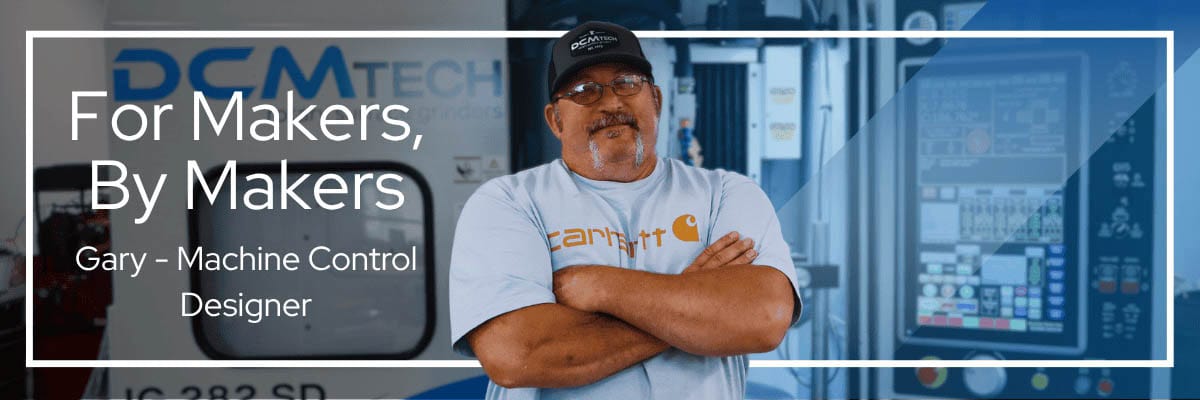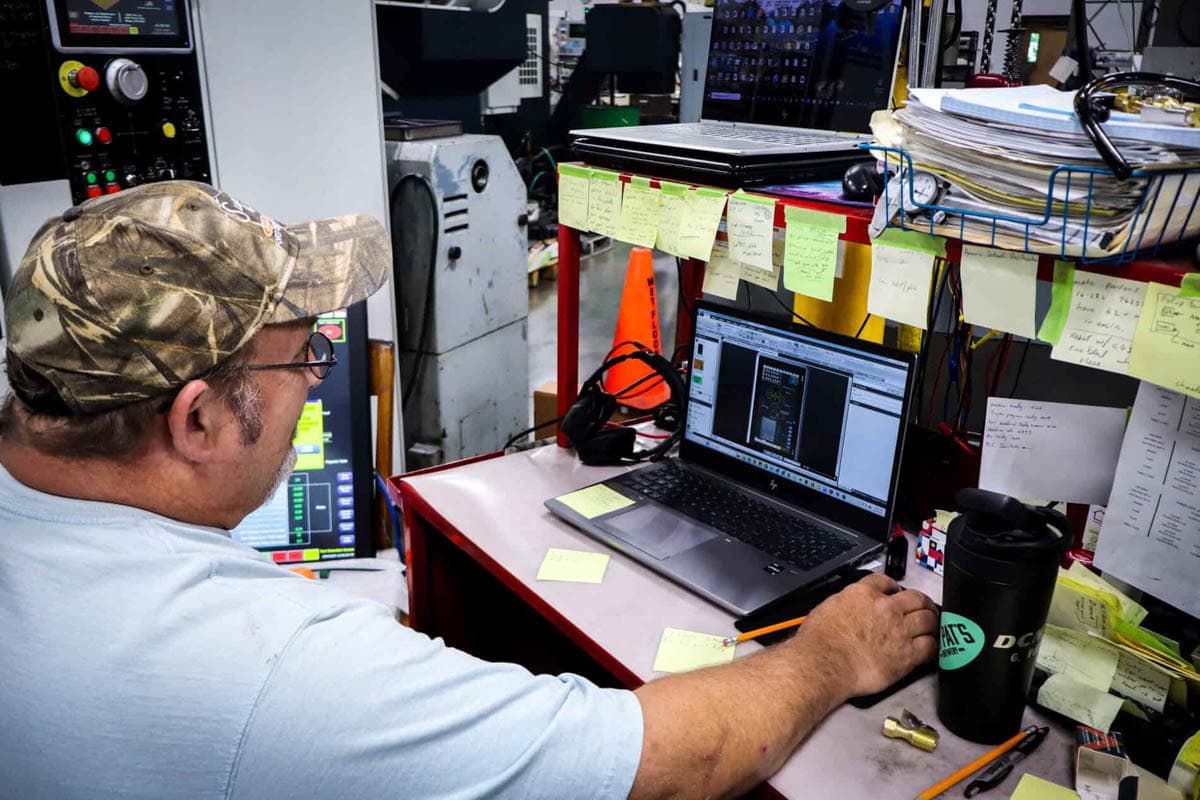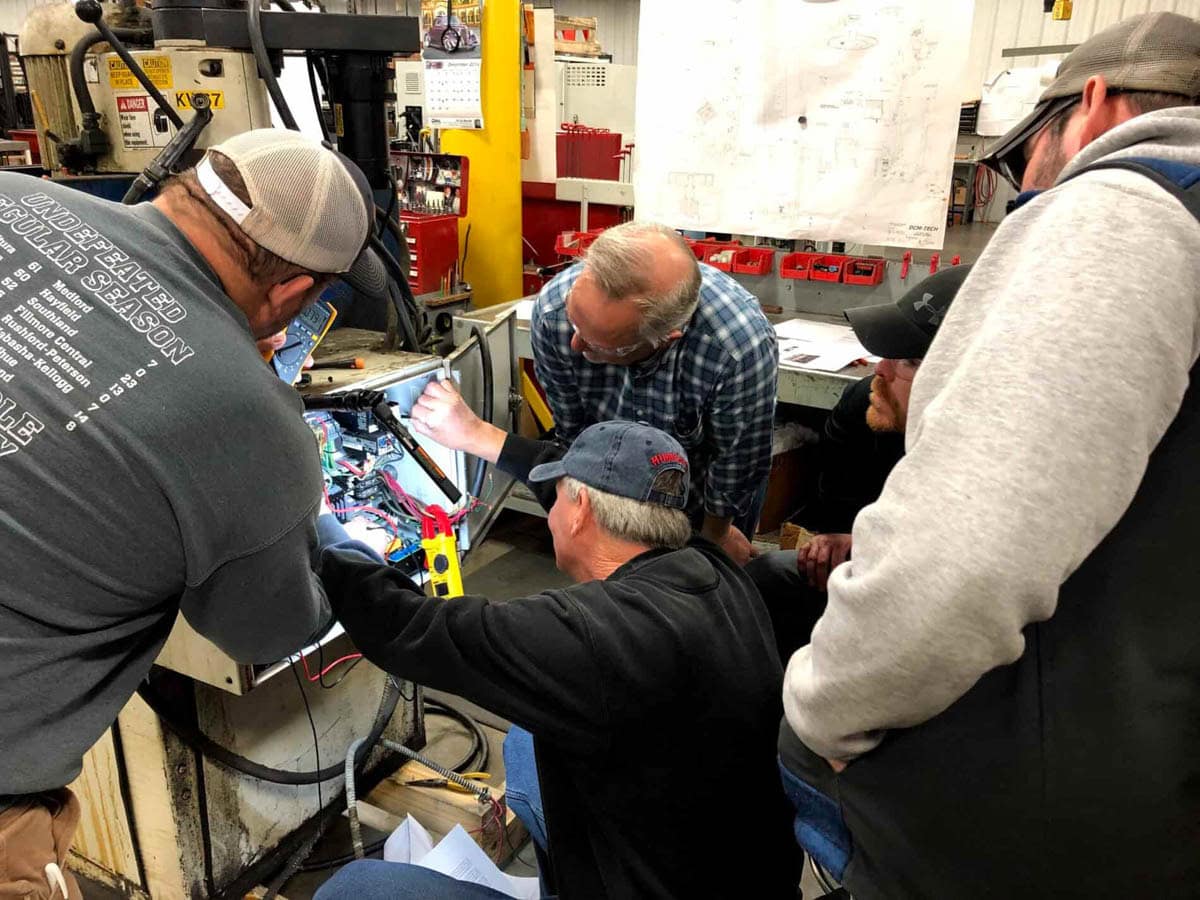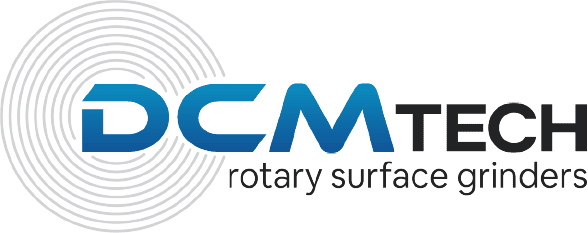
From Blueprints to Breakthroughs: Gary’s Role in Shaping DCM Machines
Gary has been with DCM Tech longer than most employees have been in the workforce—38 years and counting. He started in engineering and IT, but today, his role focuses on one of the most critical aspects of DCM’s operations: machine control design. From commissioning new builds to troubleshooting electrical and PLC systems, Gary’s job is all about making sure the machines run the way they’re supposed to—flawlessly.
“No two days are the same,” Gary says. “I could be troubleshooting legacy equipment, working with customers on special projects, or digging into electrical and HMI issues. You never really know what’s going to come up—and that’s part of what keeps it interesting.”
His deep knowledge of DCM’s machines didn’t come overnight. Before stepping into his current role, Gary spent two decades designing machinery in engineering. That experience shaped his approach to machine control work, giving him the ability to visualize how a system is supposed to function—and how to fix it when it doesn’t.
“If you understand how a machine is put together and how it should operate, you’re a step ahead when something goes wrong,” he explains. “That background really helps me troubleshoot issues that aren’t obvious.”
A Role Built on Precision
Gary’s day-to-day is a mix of hands-on and high-tech. He uses multiple laptops to connect to machines, using both serial and Ethernet connections, and works with proprietary PLC and HMI software to program and test systems.
Attention to detail is key.
“You’ve got to be meticulous,” he says. “The customer is expecting the machine to work right the first time. That means checking every circuit, every sensor—making sure all the I’s are dotted and the T’s are crossed.”
Gary’s work takes place at a crucial stage in the machine build process—final commissioning. After mechanical and electrical assembly are complete, he steps in to test, troubleshoot, and fine-tune.
“It’s the last chance to make sure everything’s right before it gets to the customer,” he says.

Innovation, Culture, and a Commitment to Improvement
Having been at DCM for nearly four decades, Gary has seen the company grow and evolve—but one thing that hasn’t changed is its commitment to innovation.
“We’re always looking at ways to improve our machines—adding new sensors, making them easier to use, improving operator efficiency,” he says. “We don’t just stick with what works—we keep building on it.”
This reflects DCM’s commitment to raising the industry standard in rotary surface grinding. We’ve proven we can make parts flat—now the question is, how can we make the operator’s job and the company’s workflow even easier? That’s where Gary and the rest of our engineering team step in.
“It’s a tight-knit group,” he says. “There’s a family feel here. Everyone’s got each other’s back, especially in the engineering team. If you need help, someone is always willing to jump in.”
Gary also appreciates DCM’s flexibility and the generosity of its leadership.
“The Arnolds are great to work for,” he says. “They care about the people here, and they care about the community. That means a lot.”

Learning and Legacy
DCM has supported Gary’s continued learning throughout his career. He’s taken machine courses and expanded his skills through hands-on training and company-paid classes.
“Being able to understand how to machine a part helps me design it better,” he explains. “It’s not just theory—it’s practical. That knowledge pays off in the real world.”
One project Gary’s proud of is the spindle motor he helped develop for DCM’s IG Series Grinders.
“We first used that motor on a surfacing machine called the Head & Block Resurfacer, and it became the heart of the IG Series,” he says. “It’s reliable, precise, and built to last. That’s something I’m proud to have my name on.”
Advice For The Next Generation
When asked what advice he’d give to someone starting in machine controls or precision manufacturing, Gary doesn’t hesitate:
“Learn to visualize your work. Be able to move quickly through a computer. Understand the basics—voltage, amperage, what makes a circuit. Know how to use a multimeter. These things come into play every day.”
Persistence is another must-have trait.
“You have to dig in. The customer’s needs don’t go away just because something’s tricky. You figure it out.”

Life in Winona, Minnesota
Outside of work, Gary finds peace in the natural beauty of southeast Minnesota.
“I live out in the woods near Winona. Every day I drive home through the bluffs and valleys—I see deer, wild turkeys… It’s just a beautiful place,” he says.
When he’s not working, Gary enjoys spending time with his kids and grandkids, riding his motorcycle, or taking care of things on the family farm.
“There’s always something to do—a goat shed, a chicken coop, a barn. You never run out of projects.”
Why DCM?
If someone’s thinking about joining the team at DCM, Gary has this to say:
“You’re not just a number here. The Arnolds genuinely care about their employees. They understand the human side of the business. That’s rare—and it’s worth a lot.”
